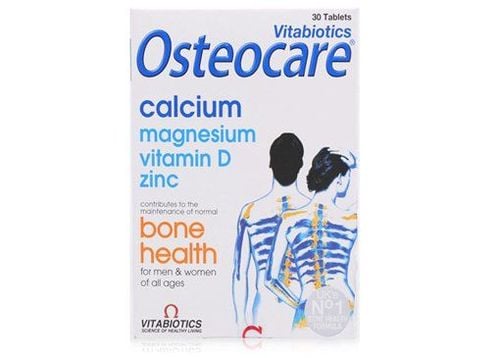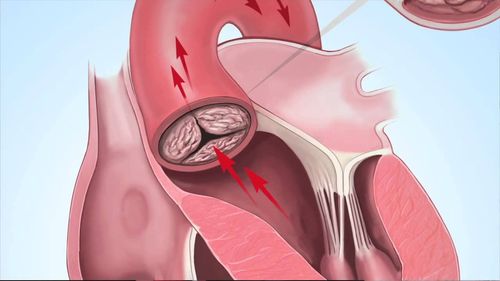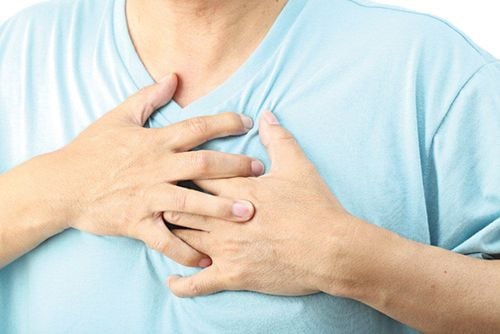Hypocalcemia, or low blood calcium, refers to a condition where the calcium level in the blood is lower than the normal range. If left untreated, it can lead to complications that negatively affect health. The groups that are most at risk for hypocalcemia are pregnant women and children. So, what should people with hypocalcemia eat?
1. What causes hypocalcemia?
Pregnant women, breastfeeding women, and children all have a high calcium need. If the daily calcium intake is not enough, it can lead to hypocalcemia. Other causes of hypocalcemia include:
- Hypoparathyroidism
- Kidney failure
- Malnutrition
- Vitamin D and magnesium deficiency
- Alcoholism
- Leukemia
- Excessive caffeine use reduces calcium absorption
- Patients undergoing chemotherapy
- Use of diuretics
2. Symptoms of Hypocalcemia
Before learning about what to eat for hypocalcemia, patients need to understand the symptoms of this condition.
Hypocalcemia often begins with symptoms such as tingling of the lips, tongue, fingers, and toes, rapid breathing, irritability, and anxiety. This is followed by muscle cramps throughout the body, which may cause signs such as the "obstetric hand" or the "pedal sign" in the feet. In more severe cases, hypocalcemia can cause spasms of the facial muscles and overall body muscles, leading to pain, respiratory muscle spasms causing difficulty breathing, and even laryngeal muscle spasms, which can result in respiratory failure and arrhythmias.
3. What to eat with hypocalcemia?
What to eat with hypocalcemia is a matter of concern for many people. Because an unreasonable diet is one of the important and common causes of calcium deficiency. Therefore, to know what to eat with hypocalcemia? Or what to eat with hypocalcemia? To help improve and prevent hypocalcemia, building a diet with enough calcium is the top priority. You can supplement a rich source of calcium in your daily meals through the following foods:
- Small fish stewed with bones, shrimp, crab, snails, etc.
- Eggs, especially the yolks
- Dark green leafy vegetables: bok choy, kale, spinach, etc.
- Milk and dairy products
- Food sources rich in vitamin D: Fish, eggs, liver, fish oil, cheese, soy milk, etc. should also be supplemented to avoid late-onset hypocalcemia.
- Food sources that supplement magnesium also help improve hypocalcemia: nuts, dark chocolate, whole grains, yogurt, avocado, dried fruit, bananas, etc.
In addition, it is recommended to sunbathe for 15-20 minutes every morning and afternoon to help the body absorb vitamin D more effectively.
- Along with the foods that need to be added to improve calcium deficiency, patients should also avoid certain foods that may lead to calcium deficiency, such as:
- Acidic foods: These can reduce the levels of alkaline minerals like calcium. Some highly acidic foods, such as canned foods or excessive consumption of dairy products, may contribute to this.
- Caffeine-containing foods: Caffeine can cause dehydration by increasing urination, which lowers calcium levels in the body and may lead to hypocalcemia. Sources of caffeine include coffee, soft drinks, tea, and chocolate. If you need to consume caffeine as part of a diet, be sure to drink enough water to avoid dehydration.
- Foods high in sodium (salt, canned foods, processed foods): Excess sodium in the body can lead to a decrease in aldosterone, a hormone that regulates sodium balance. Low aldosterone levels can result in sodium being drawn from the blood and stored in muscles and cells, causing dehydration and eventually leading to an electrolyte imbalance and hypocalcemia.
We hope this article has provided insight into what to eat for hypocalcemia and calcium deficiency. If hypocalcemia does not improve through dietary changes, patients should seek medical attention promptly at healthcare centers for examination and treatment.
For more health, nutrition, and beauty tips to protect the health of yourself and your loved ones, follow the website of Vinmec International General Hospital.
Please dial HOTLINE for more information or register for an appointment HERE. Download MyVinmec app to make appointments faster and to manage your bookings easily.
To arrange an appointment, please call HOTLINE or make your reservation directly HERE. You may also download the MyVinmec app to schedule appointments faster and manage your reservations more conveniently.








